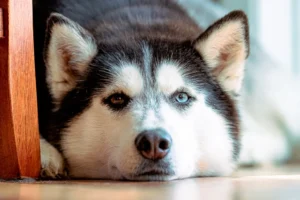Cats are mysterious creatures with many peculiar behaviors that leave pet owners scratching their heads in confusion. One such behavior is howling after pooping, which can be both surprising and concerning for cat owners. If you’ve ever wondered why your furry friend lets out a loud howl after using the litter box, you’re not alone. In this blog post, we’ll explore the reasons behind this behavior and delve into the possible explanations for why cats howl after pooping.
The Importance of Vocalization in Cats
Cats are not just fluffy balls of fur; they are highly communicative creatures that use vocalizations to convey their needs and emotions. From meows to purrs, cats have a wide range of vocalizations that they use to interact with their owners and other animals. Vocalization is a crucial aspect of cat behavior, allowing them to express everything from hunger and affection to fear and discomfort.
When your cat howls after pooping, it could be their way of communicating something to you. Understanding your cat’s vocalizations can help you better address their needs and ensure they are happy and healthy. Pay attention to the pitch, volume, and frequency of their howls to decipher what they might be trying to tell you.
Possible Medical Reasons for Howling After Pooping
While occasional vocalizations after using the litter box may not be cause for concern, consistent howling after pooping could indicate underlying medical issues. Gastrointestinal problems, such as constipation or diarrhea, can cause discomfort for your feline friend, leading to vocalizations after they relieve themselves.
Additionally, pain or discomfort in the urinary tract or digestive system could also prompt your cat to howl after pooping. It’s essential to observe your cat’s behavior closely and consult with your veterinarian if you notice any concerning symptoms. Regular check-ups and proper nutrition can help prevent and address potential medical issues that may be causing your cat to howl after pooping. Consider consulting with your vet to rule out any medical concerns and ensure your cat’s well-being.
Behavioral Explanations for Howling After Pooping
Have you ever wondered why your feline friend starts serenading you with a howl after a trip to the litter box? There could be a couple of reasons behind this vocal behavior.
Territory Marking:
One possible explanation for your cat’s post-pooping howls is territory marking. Cats are naturally territorial creatures, and by vocalizing after eliminating, they may be claiming their space and letting other animals know they’ve been there.
Seeking Attention:
Another reason for howling after pooping could be your cat seeking attention. Cats are social animals and may use vocalizations as a way to communicate their needs. If your cat feels ignored, they might howl to get your attention or to simply engage with you.
Remember, each cat is unique, so it’s essential to observe your furry friend’s behavior to understand the specific reasons behind their vocalizations. If the howling becomes excessive or concerning, it might be a good idea to consult with your veterinarian to rule out any underlying medical issues.
Understanding Your Cat’s Body Language
Cats are known for their expressive body language, which can provide valuable insights into their thoughts and feelings. When it comes to understanding why cats howl after pooping, it’s essential to pay attention to their overall posture and behavior. If your cat is howling after using the litter box, it could be a sign of discomfort or pain. It’s crucial to observe if they are straining while pooping or displaying any signs of distress.
Moreover, keep an eye out for other indicators like excessive grooming around the anal area, changes in appetite, or irregular bowel movements. These can all point to potential health issues that may be causing your cat to vocalize more than usual after going to the bathroom. If you notice any concerning symptoms, it’s best to consult your veterinarian for a thorough examination and proper diagnosis.
Fun Facts About Cat Vocalizations
Did you know that cats have a wide range of vocalizations to communicate their needs and emotions? From meows and purrs to chirps and yowls, these vocalizations can vary in tone, pitch, and intensity. Interestingly, cats meow primarily to communicate with humans and not with other cats. So, the next time your feline friend meows at you, they might be trying to get your attention or express their desires.
Additionally, cats howl as a way to communicate their territorial boundaries or signal distress. When a cat howls after pooping, it could be a way for them to mark their territory or seek help if they are experiencing discomfort. Understanding these vocal cues can help strengthen the bond between you and your cat, allowing for better communication and care.
Extra tip: Providing a calming environment, regular play sessions, and proper grooming can help reduce your cat’s stress levels and minimize excessive vocalizations.
Conclusion: Building a Stronger Bond with Your Cat
Understanding your cat’s behavior, such as howling after pooping, is crucial for creating a strong bond with your feline companion. By recognizing that this vocalization may stem from various reasons like discomfort, marking territory, or seeking attention, you can better respond to your cat’s needs.
To enhance your relationship with your cat, consider spending quality time together, engaging in play, and providing a comfortable environment. Ensure your cat has access to clean litter boxes, proper nutrition, and regular veterinary check-ups to address any health concerns that may contribute to their vocalizations.
Remember, patience is key when deciphering your cat’s behaviors. By being attentive, respectful, and responsive to your cat’s needs, you can build a deeper and more fulfilling connection with your furry friend.
Additional Unique Insight:
- Consider using pheromone diffusers or calming products to create a more soothing environment for your cat, potentially reducing post-poop howling episodes.
Remember, your cat’s well-being and happiness are essential for a harmonious coexistence. Stay attuned to their needs, and you’ll likely find that your bond grows stronger with time.
Alex, a passionate animal lover, has experience in training and understanding animal behavior. As a proud pet parent to two dogs and three cats, he founded AnimalReport.net to share insights from animal experts and expand his knowledge of the animal kingdom.




